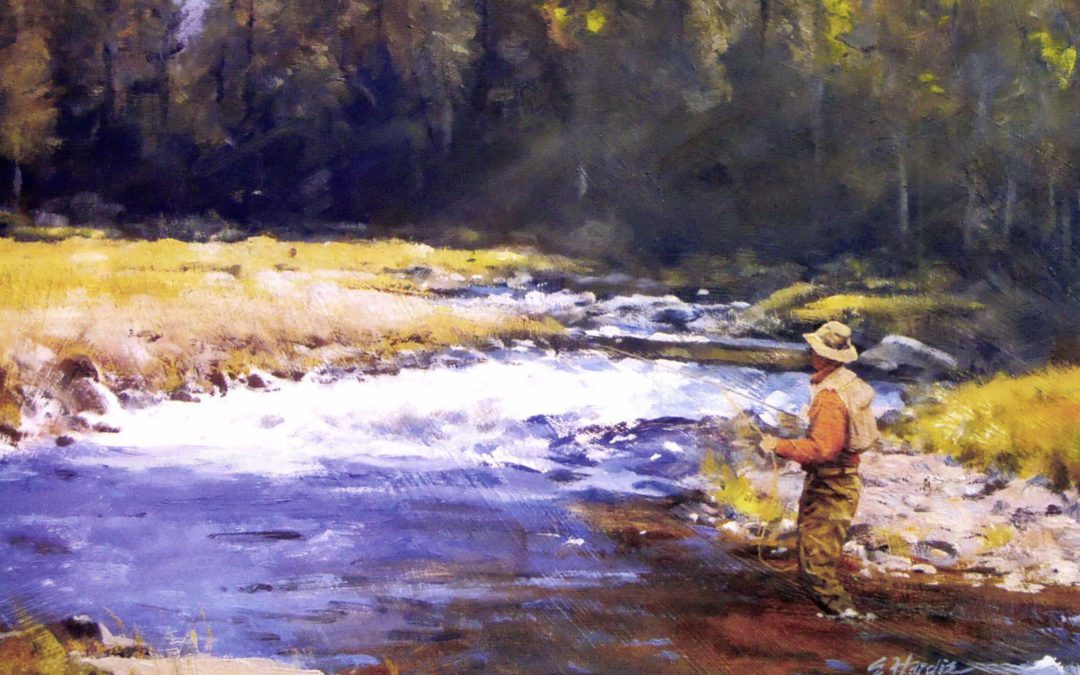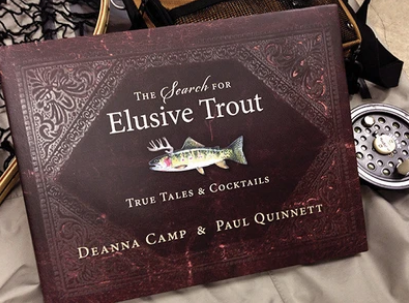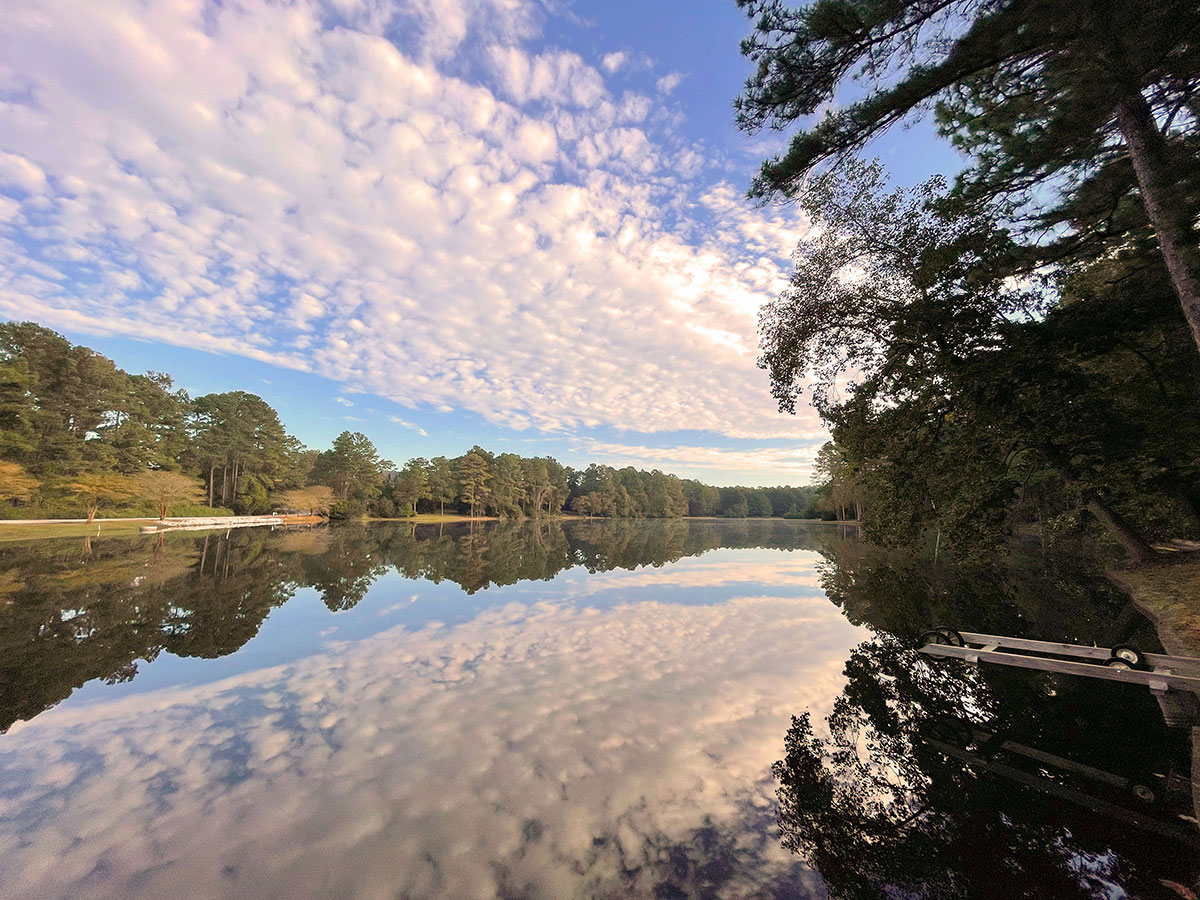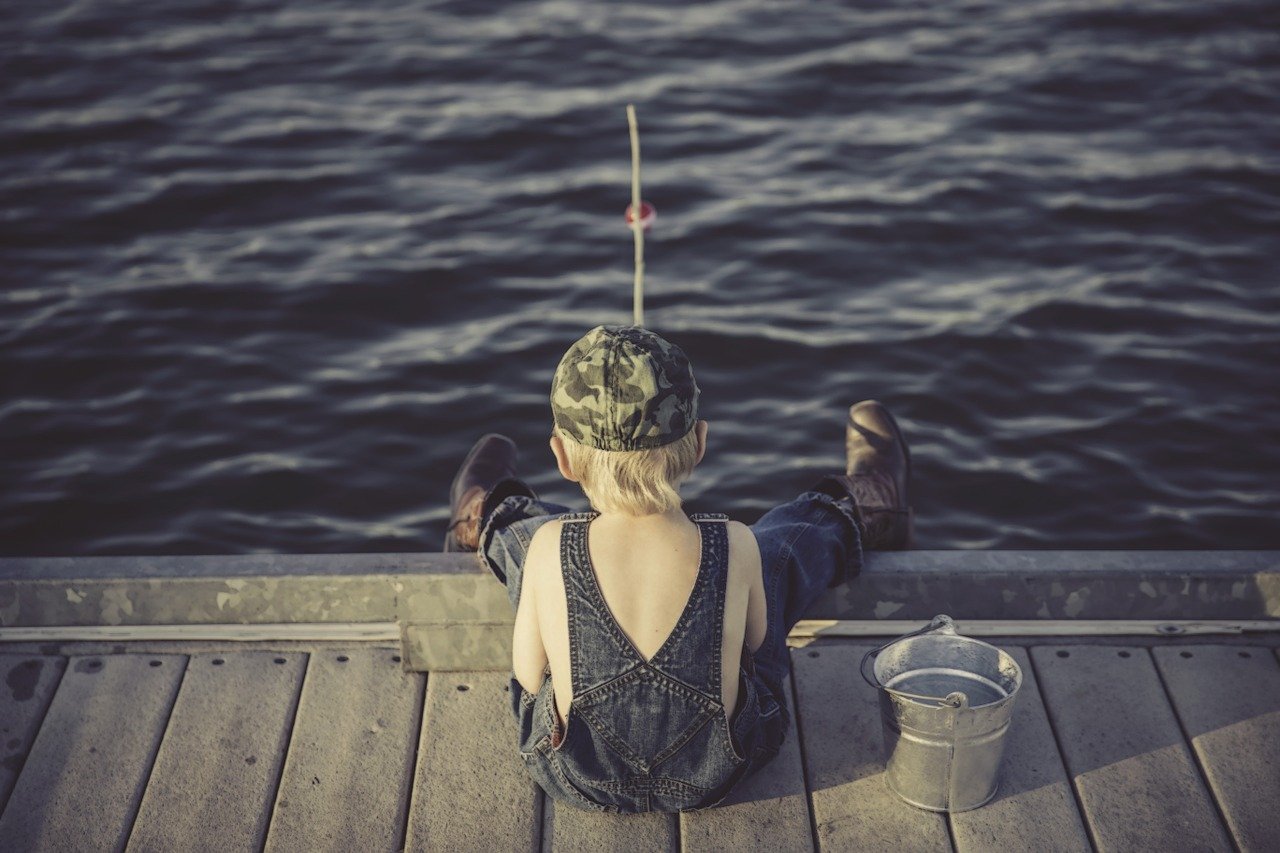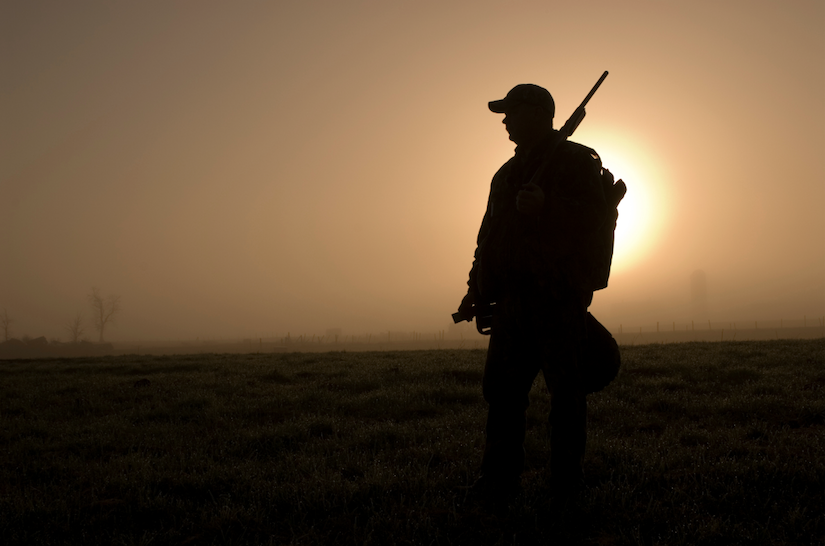She would leave him soon, and for this reason she had insisted that he fish the opener without her, the only gift she wanted for their anniversary.
The first day of trout season usually filled him with excitement. Even as a man he felt like a boy awaiting Christmas morning on the eve of the trout opener. Sleep eluded him and the night seemed endless. Last night was the same but for different reasons.
Watching his wife sleep, he eased his arms gently, reluctantly, from under her, hoping not to waken her. He walked to the kitchen, started the coffee and stoked the wood stove. Soon the fire would hold its own against the cold.
Outside, spring still struggled to lift its head and the grass wore a half-inch jacket of snow on this last Saturday in April. Under the porch light, the tulips she had planted years earlier slumped with heads bowed, weak from winter, looking like mourners. They always reminded him of her, and especially today. It was their anniversary.
Gathering himself to leave, he stopped momentarily at her door and leaned against the jamb.
“Hey, Tulip, I’m off,” he whispered.
“Will you catch one for me?”
“Always for you.”
“You promise?”
“Yes.” He paused to gather himself again. “I’ll miss you.”
“I’ll be with you.” Her voice faltered. “Is it cold out?” she asked, hiding her emotion.
“Yes. It snowed.”
“You be careful.”
“I will.”
When he bent to kiss her, she didn’t lift her head from the pillow.
The sun never appeared as he drove the two-hour distance north to the stream. Instead, the morning walked up and over the horizon dressed in grey, his companion for the rest of the day.
Winding around the old air force base, he remembered as a boy waiting eagerly to see the jet fighters lined up like steel warriors, gone with the Cold War now except for the runways, hangars and barracks. His dad used to complain that a man with a mortar and half a mind to could sneak near that fence over there and wipe them all out just like Pearl Harbor.
“Why do they line them up like that anyway?” he remembered his dad asking. Back then, his father’s concern seemed groundless if not quaint, the ramblings of a World War II veteran. These days he thought it seemed prophetic.
Entering a small town that appeared stuck in the Depression, he noted familiar buildings and homesteads, most of them remarkably unchanged over the years, paint peeling to reveal grey wood underneath. Right out of The Grapes of Wrath, he thought. He imagined Woody Guthrie sitting on a porch singing about Tom Joad and remembered stark black-and-white photographs from some other book he’d read in college. Let Us Now something … the name escaped him.
He turned left at the only blinking yellow light at the only intersection in town. From habit his eyes searched for the artesian well and the old house on 40 acres that his father always threatened to buy. Both were gone, of course, the acreage annexed to a larger parcel and the well capped. No Trespassing signs glared from fence posts, unlike the times when he and his father used to stop and drink from the well and fill their thermos bottles, the mystery of its gushing water mesmerizing to him.
“You should’ve bought it, Dad, you skinflint,” he muttered under his breath.
Soon he would come to Showman’s and Wizzer’s and other places along the road, bridges mostly, whose stretches of water his relatives had assigned names in honor of long dead men who once lived there and befriended and fished with his father and his father’s father. Over the years these names had been passed down to him and held no meaning now for anyone else. It amused him that he and his family had fished for brook trout in this water for nearly a century and he didn’t even know its real name.
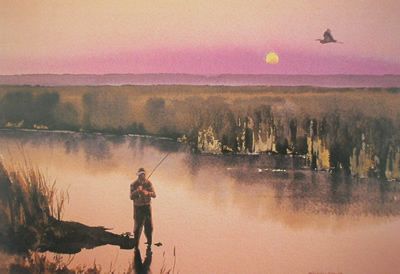 The stream was a scrapbook for him, each pool and rapids and bend a page that held memories of his youth with his father and grandfather, and later as an adult with his wife. He remembered when he first brought her here a decade ago, the moment captured in his favorite picture of her that he kept on his desk.
The stream was a scrapbook for him, each pool and rapids and bend a page that held memories of his youth with his father and grandfather, and later as an adult with his wife. He remembered when he first brought her here a decade ago, the moment captured in his favorite picture of her that he kept on his desk.
Wearing one of his hunting shirts and a camouflage hat, she stood knee-deep in a shallow rapids of amber brown water that ran across a bed of pebbles, gurgling and rushing toward a deeper, darker whirlpool, green weeds stretched tight in the current.
“Mermaid hair,” she called it, holding his Dad’s rod with his creel tucked under her arm. It became her favorite place.
Recalling the eddies that swirled around her boots and the deep summer-green foliage that embraced them, hushing the world except for the bubbling of the water, he knew then that he loved this woman who giggled at the water bugs and caught snags at every hole. He laughed at her joy, and while she stood in the water, he asked her to marry him ten years ago today.
Her illness had stunned both of them, and he felt like he had been backhanded by God. Racing like a greyhound slowed only by medication and treatments that sickened her, the disease approached the finish line at nearly full speed. He had watched her strength ebb these past months, an inexorable tide pulling her away from his arms. They knew she would leave him soon, and for this reason she had insisted that he fish the opener without her, the only gift she wanted for their anniversary.
Walking the familiar banks again, he fished without purpose or caution, randomly throwing his line into water high with thaw and with no results. Sprinkled atop the snowy limbs were small white blossoms tipped with red buds, transforming them into miniature snow cones. Two blackbirds, a red epaulet on each shoulder, strutted like Third World generals on cattails coated with snow. Overhead a skein of geese sang a spring chorus despite the cold.
With her he would’ve noted the contrasts. Without her, he didn’t see them.
Nearing her sacred water, he sat in the snow-covered grass and imagined all of the times they had walked together to this spot, this place of rapids and “mermaid hair” and proposals and promises. For a moment he saw her standing in the water again, smiling and singing with the stream as she eased her line into the dark pool under the far bank, delighted to catch small trout on opening day with him at her side.
He understood then that she had sent him here to open the scrapbook again, relive their stories and cherish their times together, sharing the blessing and peace of a trout stream, her gift to him and his to her.
He remembered his promise and rose slowly, sweeping the sadness from his mind. Crouching low to the bank, he entered the water and floated a line into the rapids where it swept into the pool she would have fished. Opaque, the water hid his spinner until the strike disguised as a snag pushed it sideways.
Skeptical, he set the hook anyway and felt the surge of a 14-inch brook trout whose nimble power in such a small stream nearly tore the rod from his hands. In time the fish relented, and he brought it to shore, gently removing the hook and holding it momentarily to admire the beauty of its speckled coloring.
If only you had three wishes to give, he thought, as he released it, recognizing that in some special way gifts had been granted. A small smile touched his face as he walked toward the car and home.
“Happy anniversary, Tulip.”
Renowned fishing writer Paul Quinnett and whimsical artist Deanna Camp team up to show you the fish you’ll forever want to catch, because you’ll almost certainly never catch one. Still, hope springs eternal in the breast of every angler, which is really the whole point.
This is the perfect gift for a fly fisher who loves a good cocktail with their wild fish stories! To aid the in joy of the journey, mix yourself one of this book’s tasty libations, build your campfire, sit back for some highly entertaining fish stories and lose yourself in the search. The 120-page book features both full-color paintings and photographs. Buy Now

